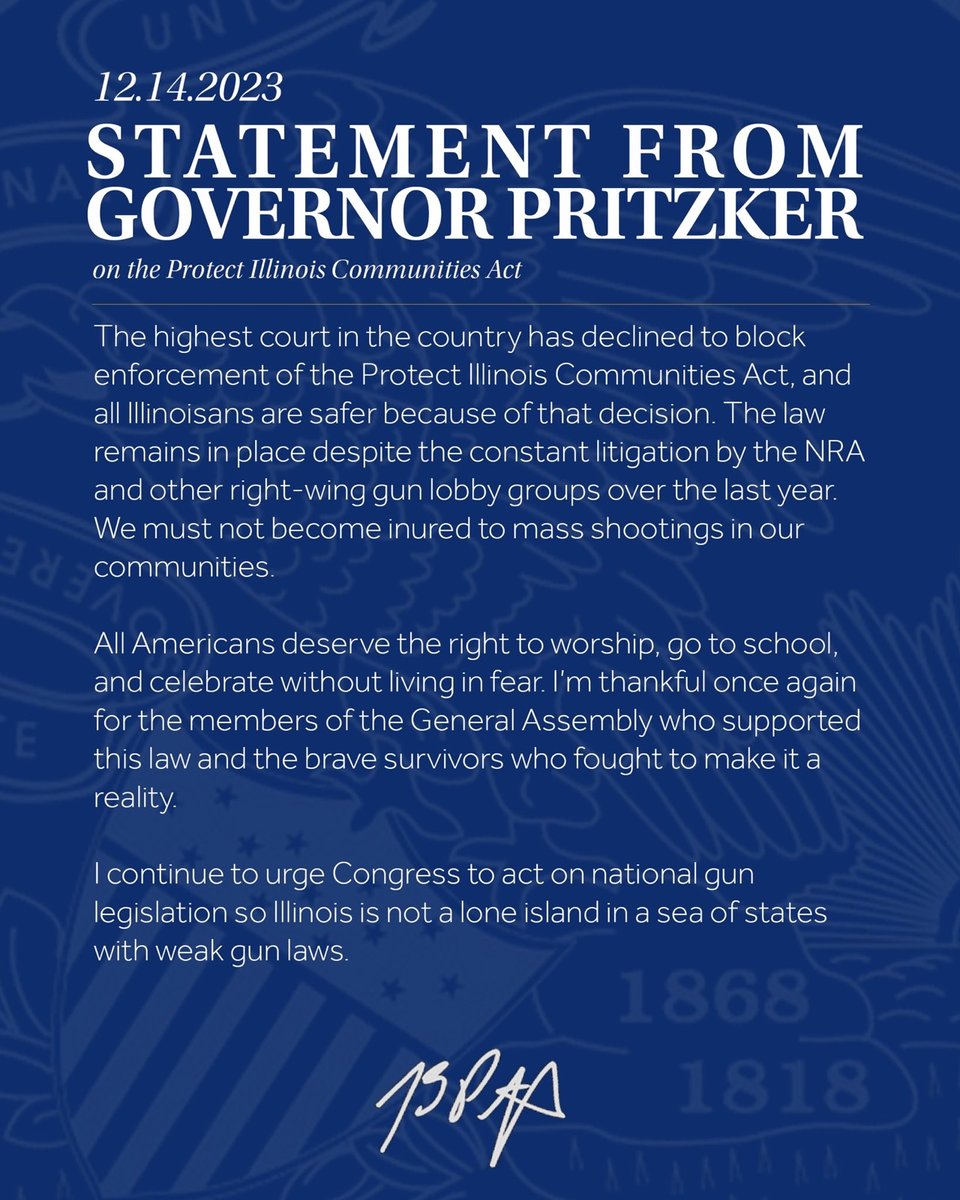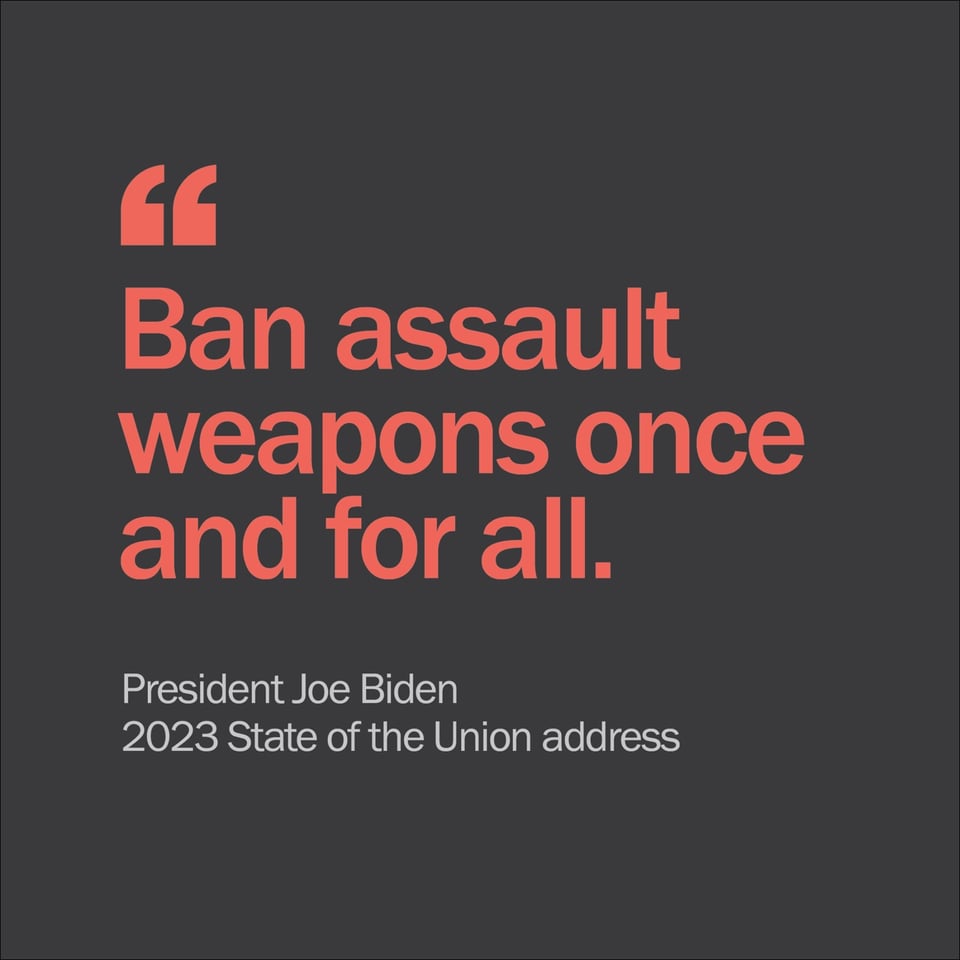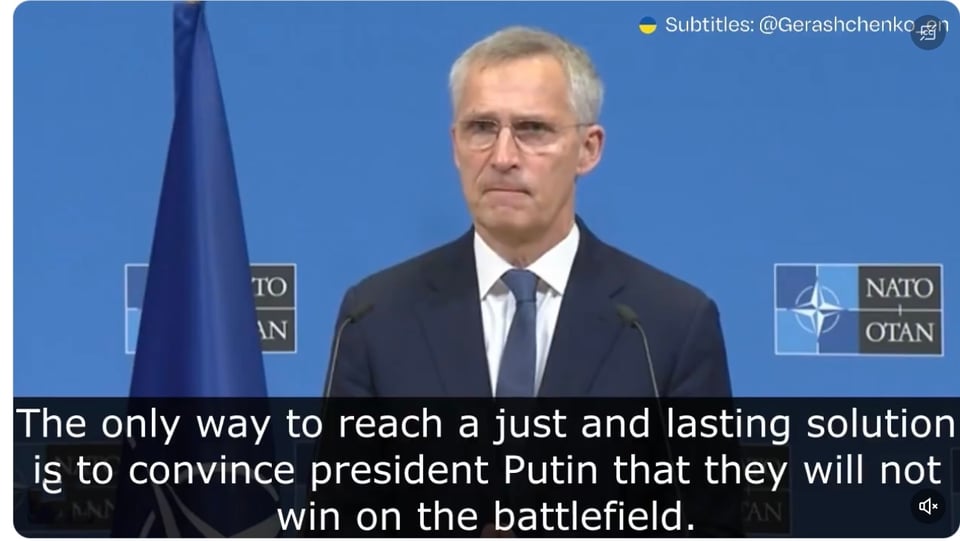Friday, December 15, 2023. Annette’s News Roundup.
I think the Roundup makes people feel not so alone.
To read an article excerpted in this Roundup, click on its blue title. Each “blue” article is hyperlinked so you can read the whole article.
Please feel free to share.
Invite at least one other person to subscribe today! https://buttondown.email/AnnettesNewsRoundup
___________________________
Joe is always busy.
US retail sales beat expectations and rose 0.3% in November, comfortably above the consensus forecast for a 0.1% decline. The news suggests the holiday shopping season will be solid. pic.twitter.com/GQSaVj6s9L
— James Picerno (@jpicerno) December 14, 2023

Israel's war in Gaza needs to "transition to the next lower intensity phase in a matter of weeks, not months," White House national security adviser Jake Sullivan told Prime Minister Benjamin Netanyahu and members of the war cabinet in a meeting on Thursday, according to two U.S. and Israeli officials.
Why it matters: The Biden administration has backed the Israeli response to the Oct. 7 attack and says it supports Israel's stated goal of ousting Hamas in Gaza, but the White House is under mounting international and domestic pressure to tell Israel to end the war.
The rate of civilian deaths in Gaza is outpacing those of other conflict zones in the 21st century. Mounting casualties have been accompanied by a rapidly deteriorating humanitarian situation in the enclave.
Biden administration officials think that moving to lower-intensity fighting will decrease civilian casualties, allow more humanitarian aid into Gaza and decrease the risk for regional war.
Biden said he wants Israel to be focused on how to save civilian lives in Gaza. "Not stop going after Hamas, but be more careful," he told reporters during a visit to the National Institutes of Health in Washington on Thursday.
What they are saying: "National Security Adviser Sullivan made clear in all meetings that the high intensity kinetic campaign needed to transition to the next lower intensity phase in a matter of weeks not months. [This is not] a deadline and we understand the campaign must and will continue, but in a lower intensity manner," a senior U.S. official told Axios.
U.S. National Security Council spokesperson John Kirby told reporters that Sullivan "asked hard questions about what the next phase is going to look like," told Netanyahu that the transition to low intensity operations needs to happen "in the near future" but did not dictate "terms."
"It has to take as long as they feel they needs to take in order to eliminate this threat, but we all want this to be over as soon as possible," he added.
"The last thing we want to do is telegraph to Hamas what they are going to face in the next weeks and months," Kirby said.
For his part, Netanyahu said in a statement after the meeting that he told the U.S. national security adviser that "Israeli soldiers didn't fall for nothing and we are more determined than ever to continue fighting until the destruction of Hamas and until full victory."
Behind the scenes: Sullivan pressed Netanyahu and the members of the war cabinet on the timetable and details on planning for when the low intensity phase of the war is going to start and what it will look like, a U.S. official told Axios.
An Israeli official said there was no pressure from Sullivan to end the fighting but that he expressed concern about the displacement of Palestinians and civilian casualties.
Nearly 1.9 million Palestinians or roughly 85% of the population have already been displaced inside Gaza as of Dec. 3, according to the United Nations. More than 18,000 Palestinians — mostly women and children — have been killed, per the Ministry of Health in Hamas-run Gaza.
Sullivan said the Biden administration wants to move toward talking more seriously about what happens after the war, stressing that it will make it easier for the U.S. to maintain support for the military operation, Israeli and U.S. officials told Axios.
Israeli official said after the meeting that the U.S. and Israel "are on the same page" about Lebanon and the need to end the war without returning to the buildup with Hezbollah forces along the northern border on Oct. 7,
Sullivan also stressed that the U.S. is committed to protecting freedom of navigation in the Red Sea and Israel agreed to the multinational maritime task force that will start operating there, according to Israeli and U.S. officials. (Axios).
Eleven years ago, the souls of Newtown, Connecticut, and the nation were pierced forever when twenty-six lives were stolen at Sandy Hook Elementary School by a lone shooter.
— President Biden (@POTUS) December 14, 2023
Today, Jill and I are praying for the families and survivors in the Newtown community.
WATCH: @POTUS announces that dozens of pharmaceutical companies will be required to pay rebates to Medicare for outrageous price hikes on prescription drugs, lowering costs for thousands of Americans. pic.twitter.com/pWrxChDWPr
— Building Back Together (@BuildingBack_US) December 14, 2023
The official White House holiday card.

John Kirby outlines the 3 conditions for Hamas to fulfill to end the war today:
— Aviva Klompas (@AvivaKlompas) December 14, 2023
1. Lay down your arms
2. Turn over those who were responsible for the October 7 attacks
3. Give up all your hostages pic.twitter.com/y7we6Jt1xA
___________________________
I say it again - Antisemitism is just one of the issues.
This, from the New York Times.👇
The Fall of Penn’s President Brings Campus Free Speech to a Crossroads

The toppling of the University of Pennsylvania’s president, Elizabeth Magill — four days after her testimony before Congress on whether to punish students if they called for genocide — was a victory for those who believe that pro-Palestinian protesters have gone too far in their speech.
To many Jews, protest slogans like “intifada revolution” and “from the river to the sea” are antisemitic and threatening — and proof of a double standard. Universities, they say, have ignored their fears and pleas for security, while creating a battalion of administrators who are devoted to diversity and equity programs and are quick to protect their students.
“Their moral blindness when it comes to antisemitism is especially concerning when it appears to conflict so dramatically with their approach to bias and hate against other groups,” Kenneth Marcus, the head of the Brandeis Center, a Jewish civil rights group, said before Ms. Magill’s resignation.
For many longtime observers of the campus speech wars, however, this moment is a dire one for freedom of expression.
Ms. Magill’s troubles, after all, did not start with the hearing, but with a Palestinian writers’ conference that was held on campus in September. Donors to Penn asked her to cancel the event, which they said included antisemitic speakers, but she declined on the grounds of free speech.
“What just happened is, they canceled Liz Magill,” said Jonathan Zimmerman, an education historian at Penn who writes about free speech. “They reinforced cancel culture. What this means is there’s going to be yet more fear and anxiety around what you can say, and how, and that can’t be good for the university.”
Penn’s chapter of the American Association of University Professors characterized the recent attacks on universities as distortions that threaten the ability of students and faculty to teach, study and discuss Israel and Palestine.
“These attacks strike at the heart of the mission of an educational institution: to foster open, critical, and rigorous research and teaching that can produce knowledge for the public good in a democratic society,” the association said in a statement posted on Saturday.
Penn and Harvard are not bound by the First Amendment, but they each have committed to offering the same protection. On Tuesday, Harvard’s governing board said it stood behind the university’s president, Claudine Gay, who had come under fire after testifying alongside Ms. Magill. “We champion open discourse and academic freedom,” the board said in a statement.
Critics are quick to point out, however, that universities have not always done so consistently. For instance, in 2021 a department at M.I.T. called off a public lecture by Dorian Abbot, a University of Chicago geophysicist, because he had publicly opposed some aspects of affirmative action. Law students at Stanford heckled a conservative federal judge who had worked against gay marriage and transgender rights.
At Penn, conservatives condemned an effort to punish Amy Wax, a tenured law professor, for a series of actions she took, including some that are protected by academic freedom, like bringing a white supremacist to speak to her class.
Steven Pinker, a cognitive psychologist at Harvard who opposes cracking down on free expression, said that speech by itself, however ugly, should not be punished. But, he said, universities have not made the best case for themselves as champions of unfettered debate.
“The problem with the university presidents saying that calls for genocide are not punishable is that they have such a risible record of defending free speech in the past that they don’t have a leg to stand on,” Dr. Pinker said in an interview.
The question is what happens from here.
At Penn, there is already a debate about changing speech codes.
The board of advisers at the university’s Wharton business school — who helped lead the charge against Ms. Magill — recently recommended in a letter that Penn amend the university’s code of conduct.
Among the proposals: Students and faculty will not “engage in hate speech, whether veiled or explicit, that incites violence.” Nor will they “use language that threatens the physical safety of community members.” And anyone who violates the standards would be “subject to immediate discipline.”
But a number of observers warn that further restrictions on speech are not the right solution.
Jonathan Friedman, a director at PEN America, a free-expression advocacy group, said the Wharton proposal was vague and would threaten to ban a wide range of speech. It would be unenforceable, he wrote, and would probably backfire.
Dr. Pinker argued in a recent essay that forbidding antisemitic speech would not improve the situation. He said that universities should adopt clear policies, which “might start with the First Amendment,” but then draw a line at behavior that gets in the way of a university’s educational mission.
So carrying placards would be OK, he said, but not heckling or vandalism — which is already the standard at many universities. Also forbidden would be gauntlets of intimidating protesters who confront students walking to classes.
Still, to Dr. Pinker the issues are larger than just speech codes. He argued that a university that was truly committed to free speech would reset its campus culture to be more accepting of differing opinions. That would include, he said, “viewpoint diversity” in hiring, as well as institutional neutrality on issues of the day.
Harvard announced last month that as part of its response to antisemitism, the university would “more fully integrate antisemitism into the work” of its Office for Equity, Diversity, Inclusion and Belonging.
But rather than expanding the purview of diversity and equity programs, Dr. Pinker has called for the opposite. He argues that these programs, which he thinks should be curbed, enforce “a uniformity of opinion, a hierarchy of victim groups, and the exclusion of freethinkers.”
Scott Bok, who resigned as chairman of Penn’s board when Ms. Magill resigned, disputed that the school had become “too woke,” and he defended the need for diversity efforts. The Penn that he attended in the 1980s, he remembered, did not have many Black, Asian or Latino students. “We should not turn back to that world,” he wrote this week in an opinion article in The Philadelphia Inquirer.
For Professor Zimmerman, a true commitment to free speech issues means that universities — and their critics — must accept that language will sometimes offend.
Despite the uproar, Ms. Magill’s comments at the congressional hearing were correct, he said. In deciding whether to discipline a student who calls for genocide, context matters.
When it comes to free speech, “there’s no other way to put it — either you believe in it or you don’t,” Professor Zimmerman said. “And if you believe in it, it means protection for heinous things that people say, unless they’re posing an immediate and direct threat to other people.” (New York Times).
___________________________
For now, Illinois keeps the gun legislation all 50 states should have.
This happened yesterday, on the 11th anniversary of the Sandy Hook murders.
US Supreme Court declines to block Illinois assault rifle ban.

Dec 14 (Reuters) - The U.S. Supreme Court on Thursday again declined to block a Democratic-backed state ban in Illinois on assault-style rifles and large capacity magazines enacted after a deadly mass shooting in Chicago's Highland Park suburb in 2022, rejecting a renewed request by a firearms retailer and a national gun rights group.
The justices' action leaves the law in place pending an appeal by the National Association for Gun Rights, Robert Bevis, and his firearms store, Law Weapons & Supply of a lower court's decision. It denied their bid for a preliminary injunction against the ban, as well as a similar ban enacted by another Chicago suburb, Naperville.
No justice publicly dissented from the decision. The Supreme Court also rebuffed the plaintiffs' request for an injunction at an earlier stage of the case in May.
Illinois passed the ban in response to a massacre at an Independence Day parade in Highland Park in 2022 that killed seven people and wounded dozens.
The Protect Illinois Communities Act, signed into law in January by Democratic Illinois Governor J.B. Pritzker, banned the sale and distribution of many kinds of high-powered semiautomatic "assault weapons," including AK-47 and AR-15 rifles, as well as magazines that take more than 10 rounds for long guns and 15 rounds for handguns.
The National Association for Gun Rights, billed as a group that accepts "no compromise on the issue of gun control," as well as Bevis and his store, challenged Naperville's ordinance restricting the sale of certain assault rifles and the state's broader ban as a violation of the U.S. Constitution's Second Amendment, which protects the right to "keep and bear" arms.
The case is one of several contesting the state's ban in federal and state courts.
The Chicago-based 7th U.S. Circuit Court of Appeals on Nov. 3 ruled against the challengers, finding that the bans were likely lawful in part because the Second Amendment applies to weapons meant for individual self-defense, not the military.
Assault weapons and high-capacity magazines, the 7th Circuit found, "are much more like machine guns and military-grade weaponry than they are like the many different types of firearms that are used for individual self-defense."
The availability of assault-style rifles is one of numerous contentious debates in a nation bitterly divided over how to address firearms violence including frequent mass shootings.
The Supreme Court, which has a 6-3 conservative majority, has taken an expansive view of the Second Amendment, broadening gun rights in three landmark rulings since 2008.
In 2022, the court recognized a constitutional right to carry a handgun in public for self defense, striking down a New York state law. (Reuters).


___________________________HB
A good time to catch up with Putin, as House Republicans block funds to Ukraine.

“Peace will come when we achieve our goals. Our goals have not changed. Denazification of Ukraine, demilitarization, its neutral status." - Putin.
“Victory will be ours,” he later told a volunteer from an occupied region of east Ukraine.
Putin says Russia, U.S. in talks over jailed Wall Street Journal reporter.
MOSCOW — Russian President Vladimir Putin said Thursday that Moscow and Washington are in contact over U.S. journalist Evan Gershkovich, who has been jailed in Russia since March on espionage charges that the Biden administration and the Wall Street Journal have denounced forcefully as baseless.
Putin, speaking at his marathon annual news conference and call-in show for citizens, denied that Russia had refused an offer to release Gershkovich, as the State Department asserted last week, and said talks were ongoing.
White House National Security Council spokesman John Kirby on Thursday confirmed that talks were continuing to “get Evan and Paul [Whelan, another jailed American,] home where they belong.” (Washington Post).
—
"If Putin wins in Ukraine, there is real risk that his aggression will not end there. Our support is not charity. It is an investment in our security," - NATO Secretary General Jens Stoltenberg.

#DefendDemocracyAidUkraine
— DrDinD🟧🇺🇲🇺🇦 He/Him (@DrDinD) December 12, 2023
Ukraine is defending democracy by successfully protecting their land and partially driving out Russian invaders. Putin is an authoritarian dictator. If Ukraine falls, he will not hesitate to invade NATO states, which would pull us into war. pic.twitter.com/OkDyEBAWXP
Touch to watch.👇
NSC’s John Kirby blames House GOP for holding up aid to Ukraine:
— The Recount (@therecount) December 14, 2023
“I sure hope that those House Republicans … heard Putin's message loud and clear. Instead, they're heading home for the holidays … [Ukrainians] need our help — and they need it right now, not after the eggnog.” pic.twitter.com/nQRLmpTHoN
One more thing.
E.U. Leaders Agree to Open Membership Talks With Ukraine.
After a bruising trip to Washington, President Volodymyr Zelensky of Ukraine welcomed a breakthrough in securing support from his allies as the war drags on. (New York Times).
___________________________
He has been let go by the New Yorker but here are some Andy Borowitz headlines to brighten your day.




___________________________